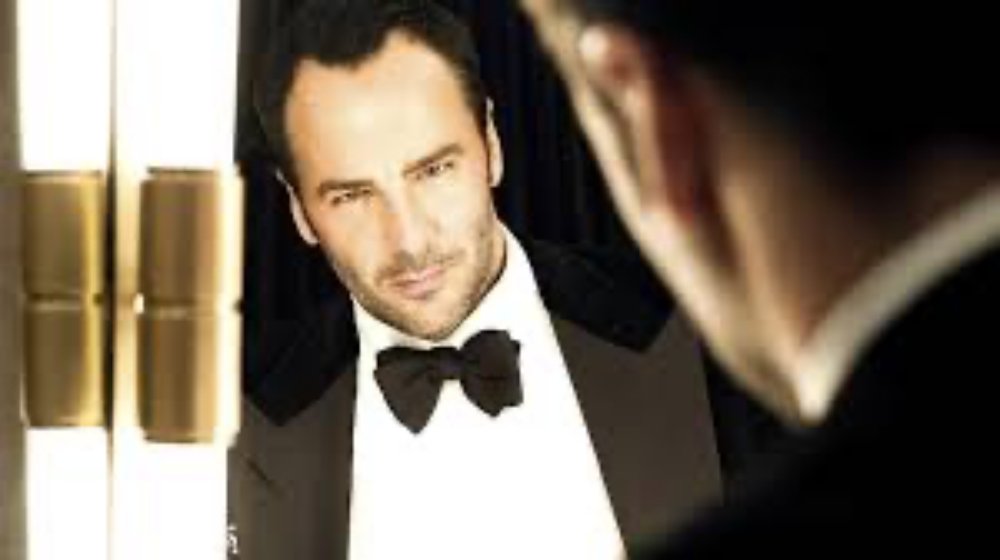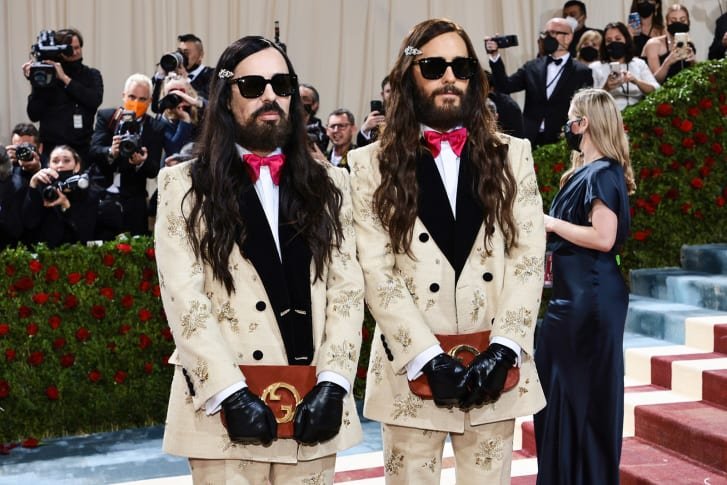What’s happening in Fashion right now? In the past couple of weeks, we’ve seen Tom Ford selling his namesake brand to Estée Lauder, Raf Simons closing his brand, and Alessandro Michele now stepping down from his role at Gucci.
Tom Ford
On the surface, these look pretty much like normal changes with fashion brands, with endless collections to pump out and designers being exhausted or unable to meet the financial demands of either running the brand or feeding the relentless growth requirements. But, upon reflection, is it something else; are we really at the end of an era?
Raf Simons
What is really going on here? Something these designers have in common is that they are part of the incredible growth of luxury brand dominance over the past 20 years. They have been in the world of luxury Brands through their monumental growth; they have been key factors in the transformation of Fashion.
Alessandro Michele with Jared Leto
What is this “transformation” of Fashion? Is it better or worse; what has been gained, and what has been lost?
Let’s start with Tom Ford. How many of us have watched “House of Gucci”? We see his rise to fame through his clear vision for glamour and sex through clothing and accessories. He literally woke up our tremendous hunger for fashion, glamour and dressing up, craving those sexy bias dresses, sharp tailoring, towering heels and bamboo-handled bags. By wearing Gucci, we could feel like celebrities, think Madonna and Gwyneth. It was epic and made an impact so great and so legendary. Mr Ford had become a legend.
After an unfortunate exit from Gucci and YSL, Tom Ford went on to start his own label with Accessories, Make-up and, eventually, Clothes. It was incredible. Mr Ford was giving us luxury through his own Brand; expensive and glamorous but so desirable. I remember thinking at the time, “what did I do before Tom Ford designed sunglasses?” The cosmetics line was so perfectly packaged and, compared to other brands, very expensive. I had to buy it. I tore out a magazine advertisement for “Black Orchid” until I could actually buy the fragrance. It was all so desirable.
If we look at the Eyewear market now, it is filled with “Luxe” Brands. Linda Farrow, Victoria Beckham and every Luxury Brand sell eyewear for every occasion. I don’t even think of buying Ford. Likewise, the luxury cosmetics market is filled with Luxury Cosmetics and Fragrances. I still buy Tom Ford, but I buy much more of his former Creative Director’s namesake collection, Charlotte Tilbury. Again, Victoria Beckham, Gucci, Liza Eldridge, Pat McGrath, and Huda have all found their place in this busy market.
This blog is running the risk of becoming a brief history of fashion. So, in writing, I will extend this to a series, starting with this one with two more to follow.
Now, let’s look at the most recent and very successful Gucci Designer - Alessandro Michele. He, like Ford, made us ‘crazy for Gucci’. I really wondered how I could get my hands on those embroidered sneakers or cool loafers. Mr Michele changed the way we dressed and the way we looked at life. He was truly on the cusp of the fluid movement, a natural talent and lover of beauty. He brought magic and whimsy to the commercial world of luxury goods.
The drive at Gucci was to make the Brand somewhat like Fast Fashion, making it appeal to younger consumers and driving the desire to keep buying more. Undoubtedly, Alessandro Michele has been successful. So his exit from Gucci came as a surprise to many. Instagram has been full of acknowledgement, sadness, shock and reflection on this news. I wonder what the future of Gucci will be. I wonder what Kering have in their future plans. In these days of Sustainability challenges, cost of living crises, anti-consumerism and anti-fast fashion, will Kering continue on the same journey?
In summary, are we at the end of the fast fashion and mega consumerist trends? Does the exit of Michele complete the cycle started by Tom Ford? Will the progressive Kering Group take a new direction and pave a more sustainable, mindful, and collaborative path, and less about buying more? Let’s wait and see.
Talk to you all again soon,
Kate


